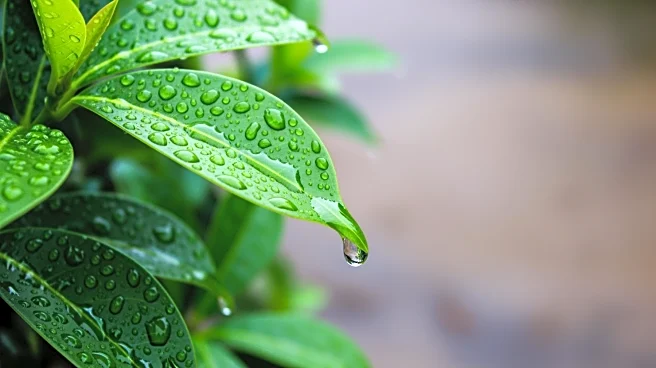What's Happening?
Jamaica has declared an outbreak of leptospirosis, a bacterial disease suspected of causing six deaths, following the devastation from Hurricane Melissa. The Category 5 hurricane struck the island on October
28, causing severe flooding and landslides. The stagnant, contaminated water has created a breeding ground for leptospirosis, which is spread through water or soil contaminated by the urine of infected animals. Health Minister Christopher Tufton reported nine confirmed cases and 28 suspected cases. The disease can lead to severe health complications, including kidney failure and liver damage.
Why It's Important?
The outbreak of leptospirosis in Jamaica highlights the public health challenges that can arise following natural disasters. The hurricane caused significant damage to the island's infrastructure, impacting key sectors such as tourism and agriculture. The spread of leptospirosis poses a threat to public health, particularly for individuals exposed to contaminated floodwaters. The outbreak underscores the need for effective disaster response and management strategies to mitigate health risks and support recovery efforts. It also emphasizes the importance of international aid and support for countries facing the aftermath of climate-related disasters.












